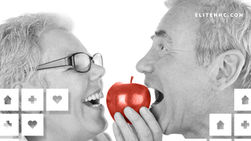10 Summer Safety Tips for Seniors
- Jun 5, 2019
- 3 min read

According to the CDC (Center for Disease Control) women have a life expectancy of 20.6 years after age 65 while men have a life expectancy of 18 years. 21.6% of them who are not institutionalized are considered to be in fair or poor health.
Summer is approaching and it's a time of year with its own hazards. There are certain safety tips that seniors need to be aware of in order to stay safe and healthy.
Keep reading to learn these 10 summer safety tips for a happy and healthy season.
1. Safety Tips Like Staying Cool Are Important to Remember
High temperatures aren't safe for anyone, but for seniors and those with medical conditions, it's even more dangerous. Use your air conditioning during hot days or head to a place with free air conditioning such as:
Movie theater
Shopping mall
Library
Friend or family's home
Senior center
If you don't have a car, get a ride from someone you know or call a Lyft or taxi to drive you.
2. Stay Hydrated
Seniors don't conserve as much water as younger people can so they're much more prone to dehydration. It also becomes more difficult to recognize the signs of thirst as we age.
Drink at least eight glasses of water or sports drinks daily. Avoid caffeine and alcohol, which dehydrate
you.
3. Talk to Your Doctor
Make sure you meet with your physician regularly to ensure you're as healthy as you can be. Ask your doctor if any of your medications are affected by hot weather.
Also, ask if any medications will affect you differently during the hotter months.
4. Wear Sunscreen
Always wear sunscreen when outside of 30 SPF or higher. Make sure the sunscreen blocks both UVA and UVB rays.
Look for clothing with SPF built into them to ensure you're always protected.
5. Wear Sunglasses
Protect your vision by wearing sunglasses when outside. A hat can also help shade your eyes from the sun.
6. Use Bug Spray
West Nile Virus and encephalitis are serious concerns. Wear bug spray when outside, especially at night.
7. Stay Inside During Peak Sun Hours
Between 10 am and 4 pm the sun is the most powerful. Plan activities around peak hours and avoid prolonged exposure.
8. Hire Help
It's often harder for seniors to clean, cook, and garden during the summer. Hiring someone to help out allows you to stay cool and avoid prolonged sun exposure.
9. Know Common Warning Signs of Hypothermia
Hyperthermia is when your body reaches abnormally high temperatures. It's an extreme form of heat stroke. Common signs include:
Fainting
Body temperature greater than 104 degrees
Nausea and vomiting
A change in behavior, such as acting confused, agitated or grouchy
Dry, flushed skin
Heavy breathing or rapid pulse
Headache
Not sweating, even if it's hot out
If you notice any symptoms, immediately seek medical attention.
10. Know Who to Call for Help
Prepare and keep a list of emergency phone numbers near your phone where others can find it easily. This will ensure you receive the right help immediately should any problems arise.
Learn How to Talk to Your Doctor
One of the best safety tips to use is to not let embarrassment keep you from bringing up certain topics.
Especially with your health caregivers.
We want to help you enjoy better health. Click here to learn how to talk to your doctor.
Want to learn more? Check out the informational posts on our blog.









































Comments